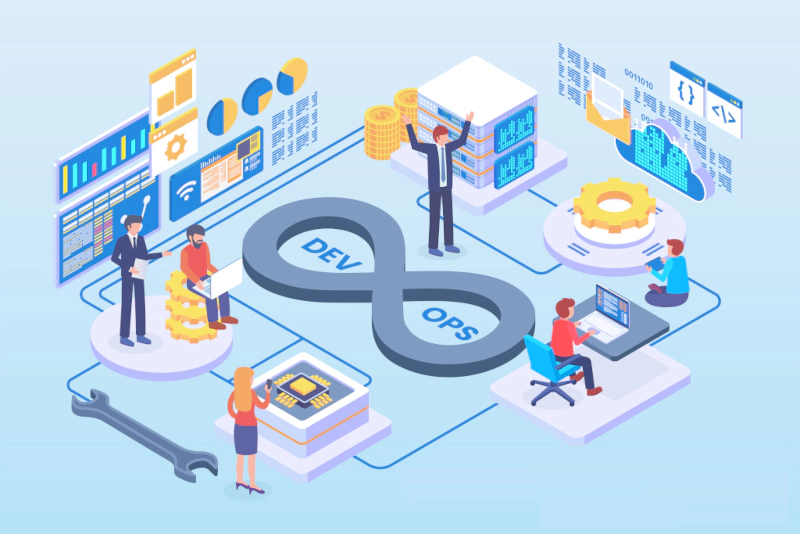DevOps vs. Traditional IT: Feel the Difference
“Today’s most adaptive and fast-growing companies are using DevOps to function close to the speed of need. They get rapid feedback on their products and meet newly arising demands with minimum delay.”
Learn more
How exactly differs DevOps from the traditional IT model?
Dedicated cross-functional teams
Any DevOps-oriented company consists of dedicated cross-functional teams instead of skill-centric silos — separate departments without sufficient communication. In a traditional IT environment, isolated teams work consequently on a new feature. DevOps teams, however, are self-sufficient. The teams consist of developers, testers, operators, and business analysts who are focused on one product (feature).
Small, frequently delivered chunks
DevOps works with small chunks, which are delivered as frequently as possible — instead of big releases once a year. From a DevOps perspective, *big bangs* are too risky, too complex, and too difficult to coordinate, while small shipments can be easily tested. If anything goes wrong, a rollback should be as simple as a git revert. In addition to this, small, frequent releases allow DevOps organizations be more *responsive* to their customers’ demands.
Automation
DevOps culture appreciates automation, and this allows the team to handle creative tasks instead of routine ones. A build is automatically created and tested for each piece of code, and (if it passes the tests) it is sent through the pipeline and delivered to consumers via different stages. However, it should be noted that total automation is usually not a desired state. The automation level depends on the processes and pain points of each team, and over-automation can lead to suboptimal results. To reach the perfect balance, each team should evaluate its needs, define the bottlenecks, and set priorities — unfortunately, there is no universal solution.
Challenges of DevOps adoption
The most important problem is, of course, the *massive mentality shift* of an entire company — from management to entry-level employees. It is the reason why it is hard to initiate the introduction of *DevOps* and why it is even harder to complete it successfully. Development and operations teams in most businesses try to achieve opposite objectives: the former is encouraged to innovate, while the latter is incentivized to maintain uptime and stability. To eliminate hostility and bring them together is not an easy task.
Let us help you with your DevOps journey
and conducting cross-functional trainings